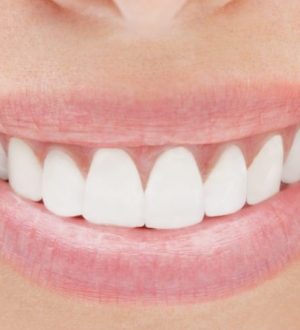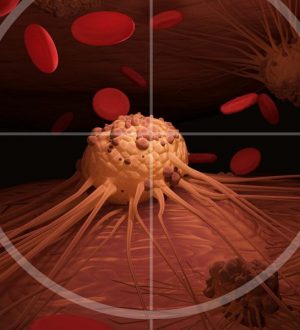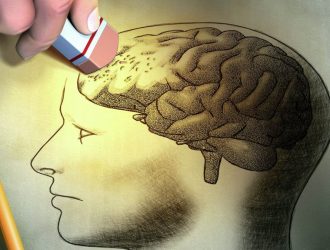
Let’s talk about how to increase your height. Normally, between age one and puberty you should grow roughly about two inches a year. Then when you reach puberty, it should be about four inches a year. You pretty much stop growing between the ages of 18 and 20. And that’s a generality because some people stop growing a little bit before that and yet others continue to grow a little bit longer than that. But that’s roughly the age group, that you stop growing. So if you’re that age or less and you want to grow a little bit more, here you will find some useful information.
Of course, there’s a genetic limitation. However, if you are deficient in certain nutrients, that can significantly affect your height.
Contents
The most important hormones for height
The three hormones that are involved in growth:
- human growth hormone, which is produced by the pituitary gland and it works through the liver;
- IGF-1, that’s insulin-like growth factor number one, and that hormone is made by your liver, and it’s controlled by the growth hormone;
- thyroid, if the thyroid is not producing enough hormones, that can create a stunted growth.
The causes of HGH deficiency
Let’s start with growth hormone. What could create a growth hormone deficiency?
- Zinc can affect growth hormone. Children with stunted growth are mainly deficient in zinc. People with growth hormone deficiency are usually deficient in zinc. So, zinc is a very important trace mineral, needed for more chemical reactions than all the other trace minerals combined. A couple things that will create a zinc deficiency are consuming too many foods with phytates. Phytates are in all the grains. So, all those so-called healthy whole grains that they tell you to eat can create a major zinc deficiency. Of course, you have other things that will deplete zinc – sugar, refined carbohydrates, alcohol, caffeine, stress. If you don’t consume any red meat or shellfish, or you’re a vegan, those things can create a zinc deficiency.
- The other thing that can create a growth hormone deficiency is starvation, where you’re starving your body of all the vitamins, minerals, nutrients, amino acids, essential fatty acids. So all that starving and exercise, and stress, and lack of nutrients have a significant negative effect on people’s overall health.
- You also need enough protein. Those people, who do not consume enough protein, can inhibit growth hormone. Lean more about The Number 1 Healthiest PROTEIN in the World
- growth hormone works, when you’re sleeping. If you’re not sleeping that well, if you have sleep problems, and you’re a teenager, that could be the thing that can set your growth.
- Obesity. The more fat that you have in your body, the less growth hormone that’s going to be activated.
- There are some other factors like smoking or second-hand smoking, that can inhibit growth hormone, and also caffeine. Think about how many teenagers are consuming massive amounts of caffeine and sugar which will deplete your zinc. Out of all the age groups, the teenager group consumes the most ultra processed junk foods.
- A lack of vitamin D. That’s a common thing nowadays with kids because they don’t go outside enough pretty much sitting behind the computer the great majority of the day (learn more about benefits of Vitamin D).
- Insulin growth factor.
The causes of IGF-1 deficiency
If there’s any damage to the liver, for example, your liver is fatty because you eat a lot of carbohydrates or high fructose corn syrup, that can inhibit that hormone IGF-1 and affect your growth.
The causes of thyroid hormone deficiency
The thyroid gland is very sensitive to iodine deficiency. With an infant or a small child, or a teenager that does not have sufficient iodine that can greatly stun your growth. Iodine is mainly in seafood, shellfish, sea kelp, and it’s in other foods that are grown close to the seashore. But if that food is grown inland, chances are it’s not going to have much iodine.
What causes height to increase?
So if you’re watching and you’re a young adult, or you’re a parent that has a child that wants to maximize their height, these are the things that you want to put on the list.
- Growth exercises: jumping, stretching, running, swimming
- A good trace mineral product that has zinc in it
- A lot of sleep. If you’re not sleeping, that is a factor you need to address.
- Avoid phytates. Phytates are in grains, so you need to avoid grains.
- Vitamin D. The best way to get vitamin D is through the sun. If you get your kids out in the sun several hours a day, that would be very smart, if they can’t do it, then give them a vitamin D supplement.
- Pituotrophin PMG. It’s a really good product to support the pituitary gland that makes growth hormone.
All these things are going to maximize your height potential, but you also must focus on your diet. The best way to figure out the healthiest diet you should be on is to take a look at what everyone’s recommending, especially the food pyramid.
Look at what the government is recommending and then use that as a check sheet to do the opposite. The majority of your diet, either whole grains or starchy carbohydrates in the form of potato, whole grain, rice things like that are the foods that you absolutely want to emit from your diet.
They’re going to tell you to avoid saturated fats and consume more vegetable oils. You want to consume saturated fats and you want to avoid vegetable oils. You can do that safely because your carbohydrates will be very low, because you’re not going to be consuming sugars.
When they recommend consuming fruits and vegetables, they’re also allowing you to consume canned fruit and even fruit juice as your fruit and vegetables. That fruit juice is pasteurized, and it’s so concentrated with sugar, it’s not benefiting you in any way at all.
You should avoid red meat, where do you think you get zinc? Red meat is one of the best sources of zinc. In summary, the best diet would be the healthy ketogenic diet. If you’re trying to maximize your height, you should do intermittent fasting because one of the potent stimulators of growth hormone is fasting.








My brother stopped growing around 18 – 19, then when he was 31 started complaining about extreme growing pains (especially at night time). He thought it was arthritic pain. But shockingly he ended up growing 2 more inches. Went to see his doctor, the doctor got scared thinking it was cancer or something, they sent him to specialists, the specialists said yeah it happens. Its not common, but it happens. So all the nonsense of growth plates and their knowledge of growth and the body is obviously wrong.
I have been 5’ 2” my entire life, until I started eating very healthy foods and plenty of them, sleeping enough and experiencing less stress. I grew an inch around the age of 40. I couldn’t believe it at first, but it did happen. I think my body wanted to be that tall but just had to wait until it had the nutrients it needed before it could finish the job!